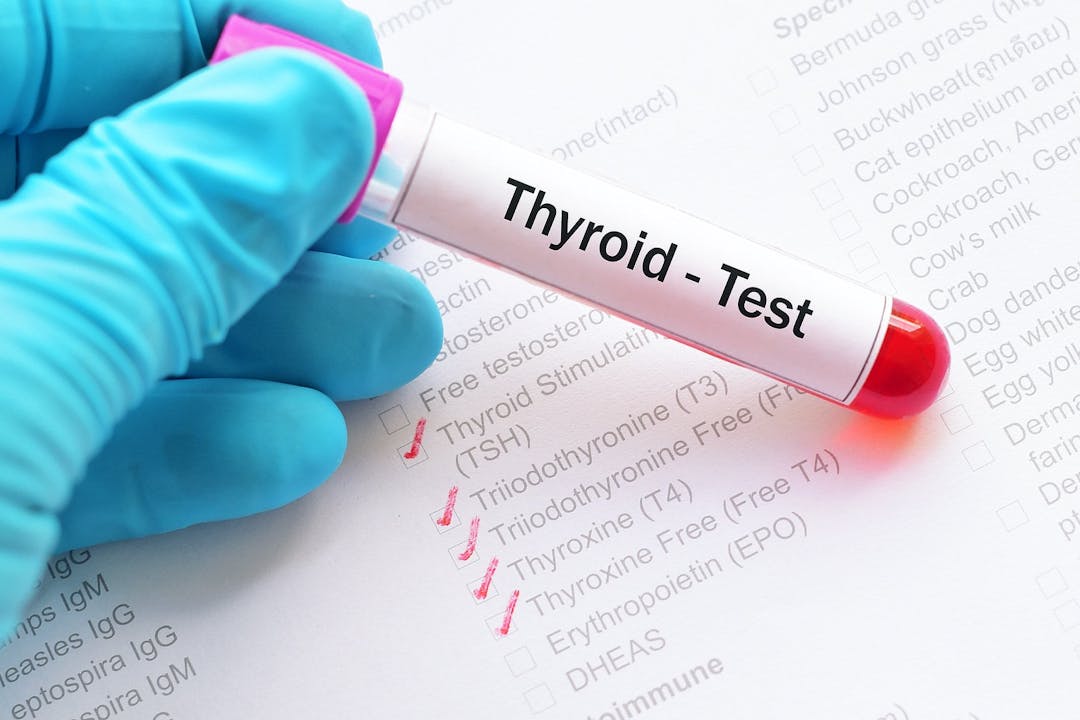
Show 1330: Rethinking Hypothyroidism (Archive)
Description
In this week’s episode, our guest explains why treating hypothyroidism isn’t always as simple as it seems. He is a leading researcher on questions relating to thyroid hormones.
What Is Hypothyroidism?
Hypothyroidism, a condition in which the thyroid gland doesn’t make enough thyroid hormone, is one of the most common hormonal disorders. It was first identified near the end of the 19th century but is far more widely recognized now. More than 20 million Americans produce too little thyroid hormone for their needs, either because their thyroid glands have been removed or because they are under attack from the immune system. Inadequate thyroid hormone has an impact on every cell in the body. As a result, the symptoms are wide-ranging, from lethargy and cognitive troubles to hair loss and constipation.
Why Should We Be Rethinking Hypothyroidism?
Most medical students learn that this is a simple straightforward condition to diagnose and treat. For decades, doctors used a single test–the TSH, or thyroid-stimulating hormone–for diagnosis. In addition, they learn that a single medication, the hormone called levothyroxine, is the sole treatment. People may know levothyroxine by its brand names, such as Synthroid or Levoxyl. Doctors often refer to it as T4, because the molecule contains four atoms of iodine.
Not everyone knows that T4 itself is not biologically active. Enzymes within the cells must remove one of those iodine atoms to create the active hormone, T3. You might recognize it by its generic name, liothyronine, or by the brand name Cytomel.
What’s Wrong with Levothyroxine Only?
Back in 1970, researchers discovered the enzymes that convert T4 to T3. That’s when doctors decided that patients would do well on a simple synthetic form of T4. In fact, 80 to 85 percent of patients with hypothyroidism have no great difficulties with this treatment.
However, about 15 to 20 percent continue to suffer despite treatment. Some feel infuriated when the doctor tells them that their normal TSH levels mean they are fine. They don’t feel fine. They still feel exhausted, confused and miserable. Researchers, including our guest, have begun to recognize that people who do not convert T4 to T3 efficiently may suffer from residual symptoms of hypothyroidism.
How Should We Be Rethinking Hypothyroidism?
Lingering symptoms of hypothyroidism, such as fatigue or brain fog, are not very specific. As a result, doctors may need to utilize more sophisticated testing techniques. Moreover, rethinking hypothyroidism means considering different forms of treatment. A person who has residual symptoms despite a normal TSH level might need a trial of combination therapy. This might be in the form of desiccated thyroid extract such as Armour or Westhroid. An alternative would be a prescription for both T4 (levothyroxine) and T3 (liothyronine) as combination therapy.
Doctors making such a change to their prescription need to adjust the dose carefully so that the patient does not end up with too much thyroid hormone. They also need to make sure during the diagnostic workup that the problem truly is hypothyroidism. Symptoms such as low energy don’t go away with thyroid hormone unless that is the underlying problem.
What Should Patients Do?
For too long, patients have heard that their residual symptoms are psychological in nature. A doctor might have insisted that a normalized TSH on treatment means nothing is wrong with the thyroid gland. People who still feel bad despite such treatment may need to hunt for a clinician willing to explore ways to address those residual symptoms.
This Week's Guest:
Antonio C. Bianco, MD, PhD, is professor of medicine and a member of the Committee on Molecular Metabolism and Nutrition at the University of Chicago. He runs a laboratory funded by the National Institutes of Health to study thyroid hormones. Dr. Bianco is a former president of the American Thyroid Association and author of Rethinking Hypothyroidism: Why Treatment Must Change and What Patients Can Do.
Twitter handle is @Bianco_Lab
The People’s Pharmacy is reader supported. When you buy through links in this post, we may earn a small affiliate commission (at no cost to you).
[caption id="attachment_110689" align="aligncenter" width="1024"] Antonio Bianco, MD, PhD, University of Chicago[/caption]
Antonio Bianco, MD, PhD, University of Chicago[/caption]
Confidence
Thank you for sharing your thoughts about one of our products! Please focus on the product performance and quality. Please read our Privacy Policy and Terms of Use for more information about the review process.
